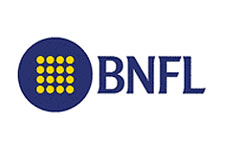LONDON: T-Mobile UK, the British arm of Europe’s largest telecom operator Deutsche Telekom AG, threw a challenge at its fixed line rivals by announcing a mobile Internet service called “Web ‘n’ Walk”.
The new service, believed to be crucial for the company’s business in the UK, allows customers full Internet access for £9 a month. Customers will have 40 MB of data usage which equals around 2,500 emails or 500 web pages. They will be able to use the mobile in exactly the same way as they would a computer; such as making online purchases, browsing, etc. The service comes through a portal headed with the search engine Google.
The mobile operator’s managing director Brian McBride told journalists over a teleconference that the company aimed to displace fixed-line usage with their total Internet usage. He pointed out that Internet services on mobile devices had so far been slow, difficult to navigate and “bloody expensive”. But T-Mobile’s “Web ‘n’ Walk” would change all that.
The company despite losing market share had been busy planning high-speed broadband mobile data services to its customers by integrating its networks with upgraded technology. It has also planned a launch of the HSDPA next year, a technology which enables broadband Internet speed on 3G networks.
The company also announced five devices for the new service and promised three more by Christmas. These include the MDA Pro Smartphone handsets that make browsing the Net much easier than on conventional mobile phones. These handsets are designed for 3G and WiFi networks as well as the analogue spectrum.
McBride said he expected hundreds of thousands of people over the next two years to begin using the Internet through their mobile phones. The service had already been launched by its parent Deutsche in Germany. The UK launch will be marketed using a £10 million advertising campaign.
T-Mobile customers will have a choice of three tariffs that will include ‘Web ‘n’ Walk”: £30, £38 and £55 a month. Each would offer 40 Mb worth of data download but with differing voice minutes.
For most mobile operators, including Internet service as part of the services package is crucial for business in the current “overheated market” according to an analyst. It seems like the only way to increase data revenue.



 Bitcoin
Bitcoin  Ethereum
Ethereum  XRP
XRP  Tether
Tether  Solana
Solana  USDC
USDC  Cardano
Cardano  Lido Staked Ether
Lido Staked Ether  TRON
TRON  Avalanche
Avalanche  Toncoin
Toncoin